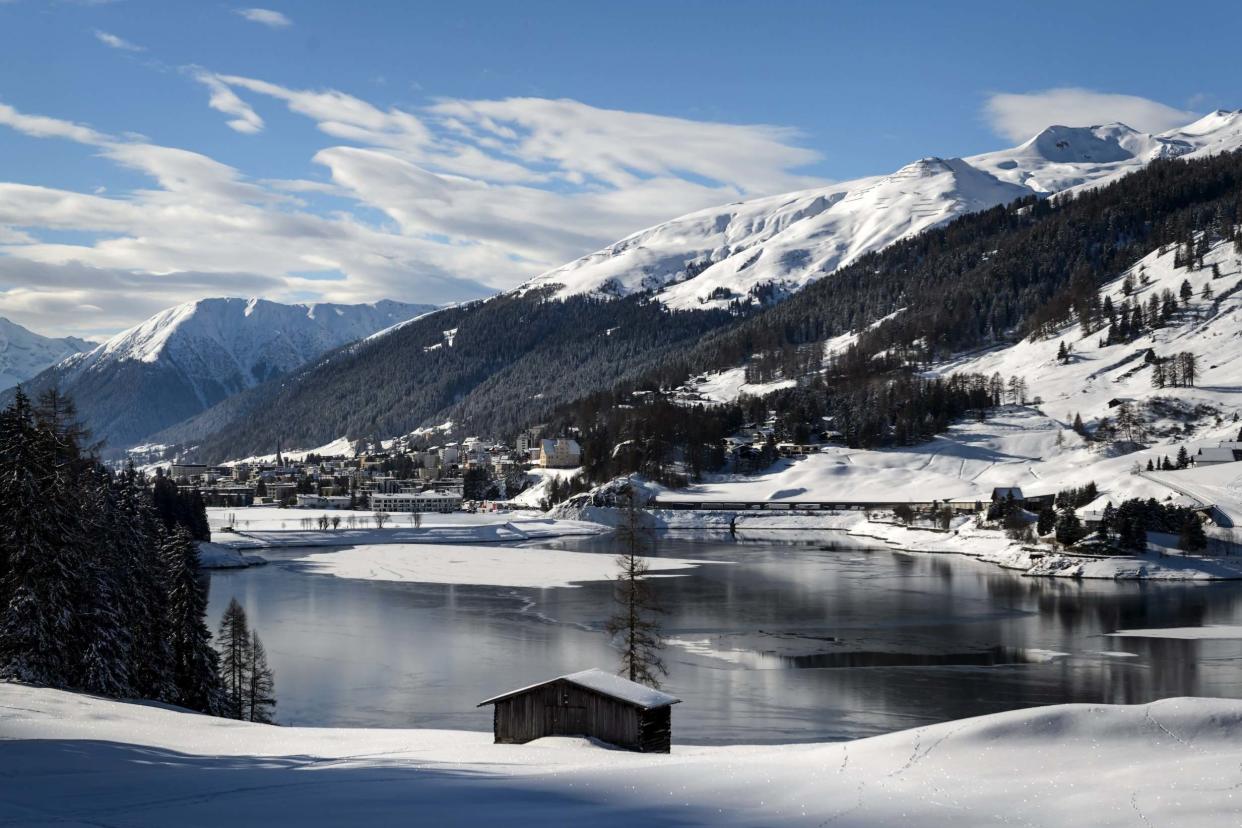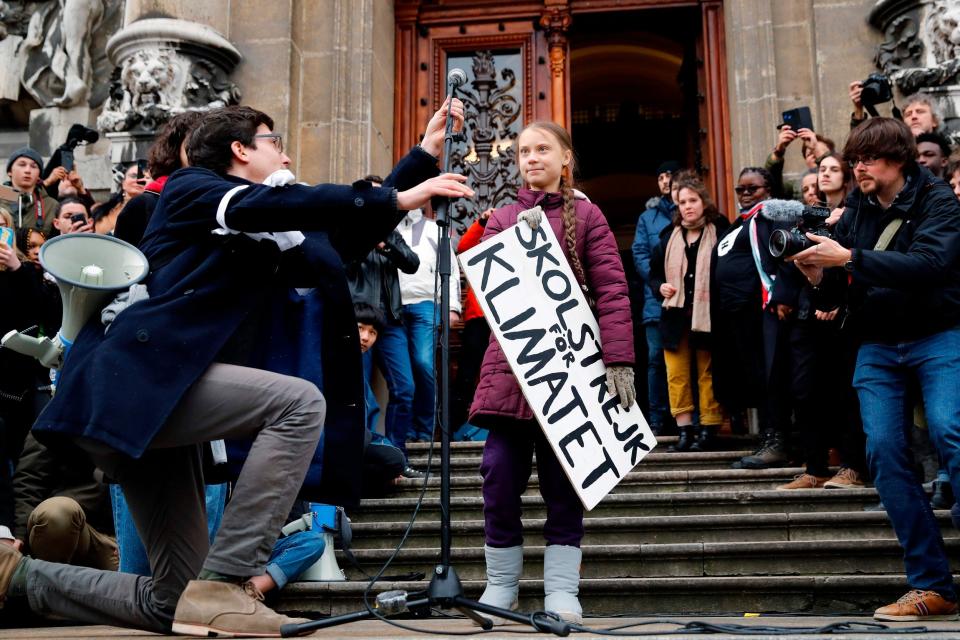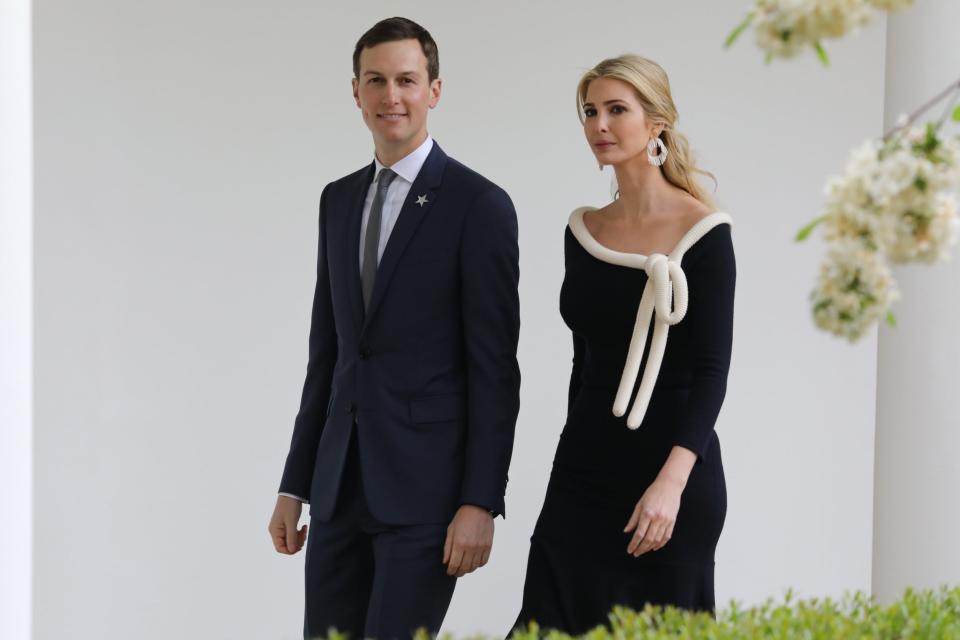From Greta’s headline speech to the Trumps on tour, what to expect from the Davos summit this year

Most of the year, Davos is a smart ski town in the Swiss Alps, two hours from Zurich. But for four days in late January it hosts the annual meeting of the World Economic Forum — and in the process, becomes the centre of the business, political and non-profit world.
This congress of power and influence was founded in 1971 by Klaus Schwab, a German academic, who claims to have originated the idea of “stakeholder capitalism” — which is the notion that companies have a duty to do more than just make money for shareholders.
Schwab has degrees from Harvard, the Swiss Federal Institute of Technology in Zurich and the University of Fribourg. He is also a former member of the UN High-Level Advisory Board on Sustainable Development, and — despite attacks from critics, who argue the summit is elitist and out of touch — remains evangelical about its role in changing the world. “Elites have always existed,” he told The New York Times this weekend. “We bring together people of influence, and we hope that they use their influence in a positive way.”
The WEF employs 700 people to organise Davos and several other international meetings, as well as manage digital platforms encouraging public-private cooperation. It is a non-profit organisation based in Geneva, and claims to engage “the foremost political, business, cultural and other leaders of society to shape global, regional and industry agendas”.
Certainly, the summit remains the social event of the year for the global economic and political elite, where agendas are set, messages honed and deals struck far from the public gaze. It attracts presidents, prime ministers, CEOs, entrepreneurs and all their hangers-on. More than 500 of the Swiss police and army’s finest patrol the resort to keep it free of protesters.
The top names have schedules which resemble speed dating through the day and night, culminating in the notorious “nightcaps” — late-night parties organised in hotel bars and mountain chalets. It’s a rare occasion for the most powerful people in the world to fraternise without scrutiny and be their bad selves after dark.
Think Tony Blair riding a funicular with Bill Gates, Mark Zuckerberg and Christine Lagarde, the head of the European Central Bank, to get to a party with George Clooney and several Russian oligarchs.
Movers and shakers
So, who’s going this year? While the business and tech crowd attends regularly, politicians can be wary of seeming too elitist. Boris Johnson has been before but ordered his ministers not to come. It doesn’t jibe with the new Tory earthiness.

Barack Obama never went to Davos, but Donald Trump will be back for his second visit. Despite his reputation as a populist, Trump found the business crowd sympathetic when he went in 2018. He’ll be accompanied by his daughter Ivanka and her husband Jared Kushner.
Other big draws will be Greta Thunberg, the 17-year-old Swedish climate activist; Ren Zhengfei, the founder of telecoms firm Huawei; Sanna Marin of Finland, at 34 the world’s youngest serving prime minister; Sheryl Sandberg, COO of Facebook; and European Commission President Ursula von der Leyen.
Going green
This year’s summit takes place against the backdrop of Trump’s impeachment trial, tensions with Iran, the Australian bushfires and the “techlash”. Previous years have been dominated by the emergence of a particular country, such as Russia, India or China, or on-going issues such as Brexit. The Russians used to throw parties staffed by unusually attractive female “translators”, but they have gone quiet recently. This year, the environment and the so-called “decoupling” of economic growth and emissions will be top of the agenda. Larry Fink, the CEO of BlackRock, the world’s largest money management firm, has refused a coal-fired jet to fly into the conference, and last week warned that “climate risk is financial risk”. How can economies grow without hurting the planet? Global taxation and crypto-currencies are likely to be major issues.
Davos is also where the bandwagon of corporate blather gets loaded up and sent off down the track towards the rest of us. The official theme is slippery: “Stakeholders for a Cohesive and Sustainable World.” Into that mould, leaders can fit almost any subject they want. The sub-themes are Healthy Futures, How to Save the Planet, Better Business, Beyond Geopolitics, Tech for Good, Society and Future of Work, and Fairer Economies.
To mark its 50th birthday, the WEF has refreshed its manifesto, to argue that “companies should pay their fair share of taxes, show zero tolerance for corruption, uphold human rights throughout their global supply chains, and advocate for a competitive level playing field”.
But it’s not all business. Attendees will really want to talk about Harry and Meghan’s defection, and how Carlos Ghosn — the former CEO of Renault-Nissan — escaped Japan for Beirut by hiding in a musical instruments box.
High fliers
Davos is up a mountain, and the higher you are on it, the higher your status. The truly elite stay in chalets in the clouds. The peons stay in the valley. In between is the town itself. The national delegations, and the merely powerful, stay in hotels here, notably The Belvedere. Here’s where you’ll also find the Congress Centre, the hub of the summit.

There are strict levels of access, or circles of hell, all rendered visible by the colour of your badge. White with a hologram shows you are at the top level. Grey is for your partner. Orange is for press. Purple is for technicians. Green is for those accompanying heads of state.
The seriously elite will have spent the weekend in St Moritz at the wedding celebrations of Stavros Niarchos, the shipping heir, and Dasha Zhukova, Roman Abramovich’s ex. The dress code is business attire under a fur-lined parka, rubber-soled boots, and a Zurich Insurance woollen bobble hat.
Flygskam — and other criticisms
Who has a problem with it? Anyone who prefers their ruling class to be accountable. Writer Anand Giridharadas launched the hashtag #CancelDavos and wrote: “Davos is a family reunion of the global tippy-tops, who have pulled off a coup: rigging nations to monopolise the fruits of progress for themselves — then benefiting when demagogues goad stiffed publics not to punch up, at them, but down, at the most vulnerable.”
Environmentalists attack the hypocrisy of people arriving at a mountain resort on private jets to express their concern for the environment. Last year, Prince William interviewed Sir David Attenborough at Davos, as the private jet traffic around Davos hit new heights.
This year the WEF is trying to get ahead of the “flight shaming” by promising the summit will be carbon neutral. There will be more electric vehicles, local food and plenty of non-meat options. The main conference centre has been fitted with solar panels, geothermal heating and carpets made from “end-of-life fishing nets”.
Does any of it matter? Chances are that over the next year, you’ll hear a word or phrase repeated by politicians. Or your boss will focus on some issue you never thought they cared about. Or you’ll feel some tremor in your industry. And the origins will have been a Davos nightcap.
Read more
PM bans ministers from Davos so they can 'focus on the people'

 Yahoo News
Yahoo News 
